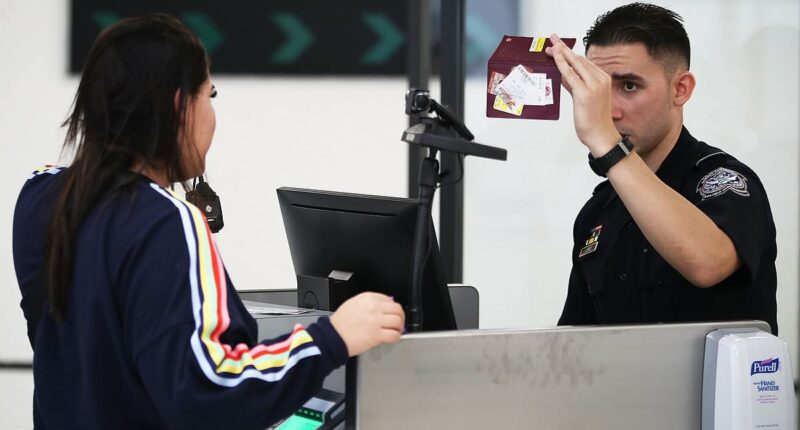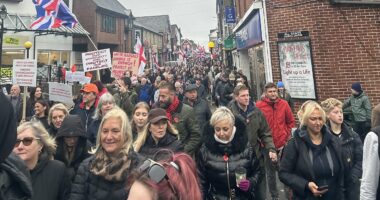Share this @internewscast.com
The United States is rolling out a new travel fee. It is not cheap.
A provision in the recently-signed Big, Beautiful Bill Act will require thousands of individuals to pay a new ‘visa integrity fee.’
A $250 fee is being introduced for those entering the US on a nonimmigrant visa, which encompasses tourists, business visitors, and international students. This charge is applicable solely to visas that have been approved.
Travelers who later leave the US and can prove they didn’t overstay their visa may be eligible for reimbursement, according to the law.
The fee will largely impact travelers from countries that don’t have waiver programs, like China, India, Nigeria, and Brazil.
Most tourists from Africa, South America, and the Middle East will also have to pay the fee.
It remains uncertain whether this fee will impact widely used travel categories such as the Electronic System for Travel Authorization (ESTA), often utilized by many visitors from partner countries in Europe, Asia, and Australia.
Most travelers are eligible to pay just $21 to $40 before crossing the border.

A provision in the recently-signed tax and spending bill will slap a $250 fee on many nonimmigrant visa carriers entering the US
For years, Republicans and Trump officials have argued that taxpayers shouldn’t foot the bill for immigration enforcement and visa processing.
Proponents argue that the new fee transfers the expense to travelers and serves as an incentive for compliance with the regulations. The initiative is projected to generate about $29 billion over the coming ten years.
But immigration lawyers are pushing back, warning that the federal government hasn’t explained when the fee will take effect or how travelers will get their money back.
They also worry the process will require burdensome paperwork and red tape.
‘This fee is supposed to be reimbursable after the expiration of the visa, provided the visa holder can document full compliance,’ Loren Locke, a Georgia-based immigration lawyer, told DailyMail.com.
‘Many B1/B2 visitor visas are valid for a full decade. That is a long time to compile and save records, and a long time to wait to get your money back.’
Meanwhile, visa holders can likely expect costs to rise.
The law sets a minimum fee of $250 for the 2025 fiscal year, but allows the Department of Homeland Security to raise the amount — and requires it to adjust for inflation.

The move comes amid a major slowdown in Canadian border crossings into the US

President Trump signed the bill into law on July 4

Experts worry the law will have unintended impacts on airline companies that are already slashing domestic flight capacity
The increasing cost could have a terrible economic impact, according to Locke.
‘Additional fees can deter legitimate travelers while doing little to address actual visa violations,’ she said.
‘But the new fee does send a clear message to would-be vacationers: the US government sees you as a potential threat, not as a valued guest.’
The fee comes down as international travel to America keeps slowing.
In January, President Trump signed an executive order, asking the Homeland Security and National Intelligence offices to ensure travellers entering the US are ‘vetted and screened to the maximum degree possible.’
To Locke, threats and financial penalties to enter the US have contributed to the turndown in international travel to the US.
Leading the way in US travel boycotts is the neighbor to the north: Canada.
The long-time ally has sparred with the Trump Administration over tariffs, US threats of a takeover, and immigration policy.
Canadians, who have long been the top international travelers to the US, are instead withholding much of the $20.5 billion they typically spend traveling to the US.
Now, if the visa fee is fully launched, it will likely become even more cost prohibitive for Canadians to come into the US.
International Airlines, like Air Canada, have already cancelled dozens of US-based trips because of slumping demand.

















